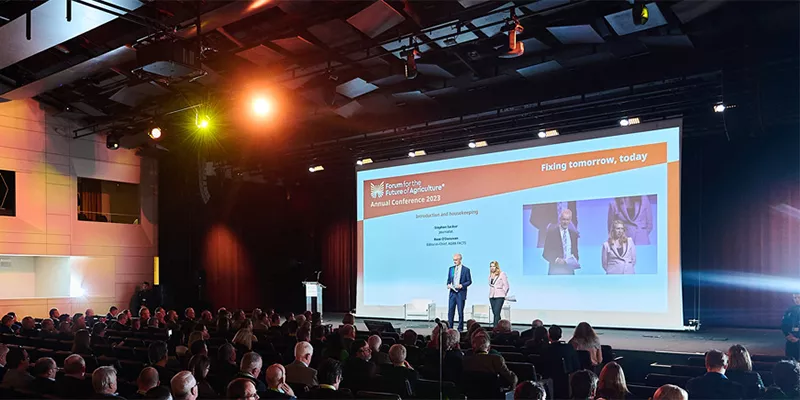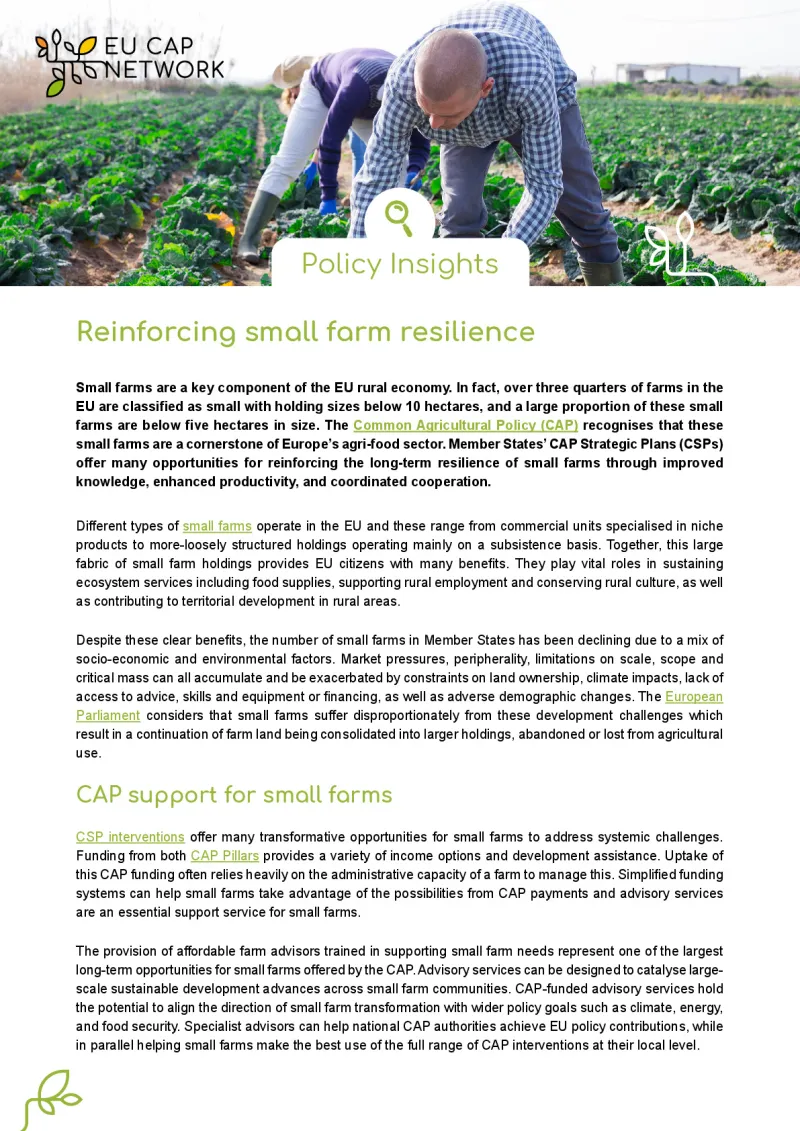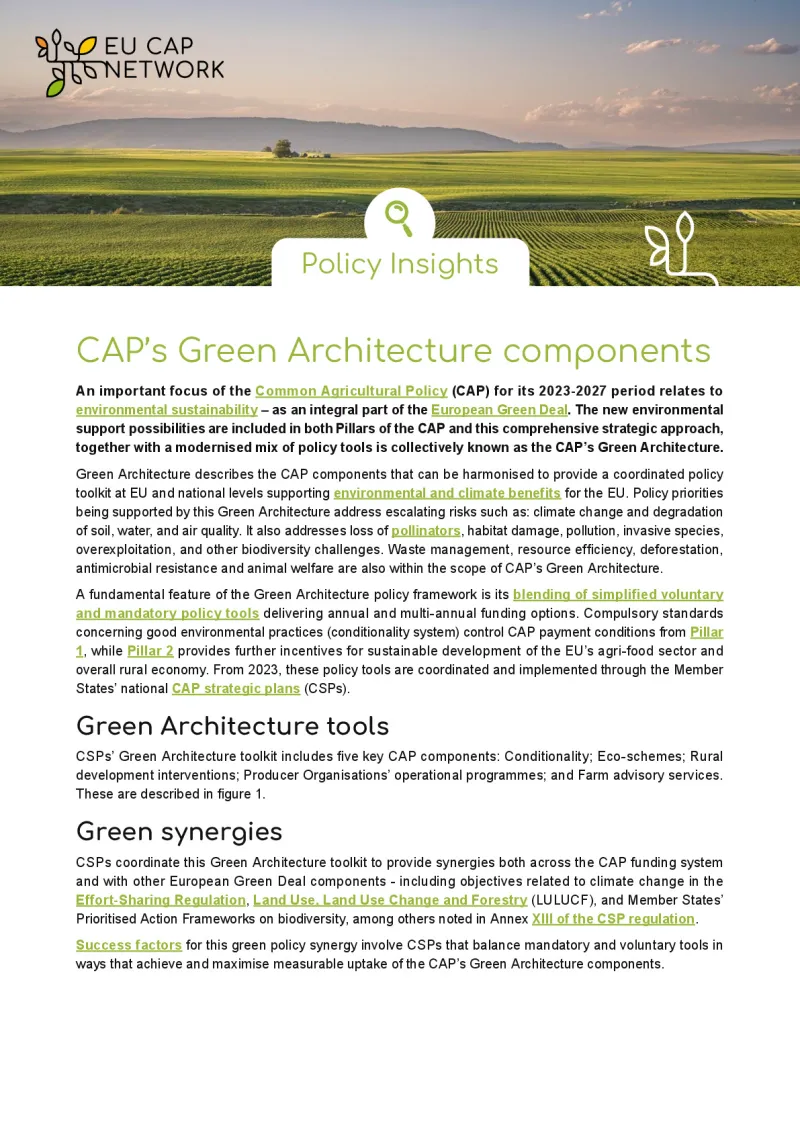Forum for the future of agriculture 2023 - Highlights
At the latest Forum for the Future of Agriculture annual conference, European Commission representatives stressed the EU commitment to sustainable food systems.

On Tuesday, March 28, the 2023 Annual Conference of the Forum for the Future of Agriculture took place in Brussels.
Speaking at the session "Can we afford not to pay the price of change in today's geo-political and economic reality?", Frans Timmermans, Executive vice-president of the European Commission, stressed that "we need a transition to sustainability and we need it fast" as time is "the one luxury we don't have".
He reminded that sustainability "is not about saving the planet" - which can do very well without us - it's about saving humanity, since we depend on the health and well-being of other species to survive. "Our collective sustainability" requires a change in behaviour.
Talking about food security, Timmermans stressed that "Climate change and the increasing scarcity of resources will have obviously an impact on our food security." It is high time to act: "Whether it's transport, energy, industry or food, every sector will have to change. If we plan for it, we can manage, but if we don't, external crises and shocks will take care of that for us."
He then listed four key action points: reducing greenhouse gas emissions from frood production and consumption; halting the loss of biodiversity; ensuring that consumers are better informed and can make better choices in terms of healthy food; and reducing food waste.
While doing all this will require a lot of time and money, "it will also generate a lot of new economic opportunities", which can be supported by public funding and private investments combined.
The Green Deal has remained on top of the European Commission agenda despite the several crises of the last few years.
Timmermans also highlighted that "The science is clear: if we want lasting food security we need to address all the problems in the food system and we need to start now." Supporting farmers, reducing chemical pesticides, restoring soils and protecting harvests from droughts and high temepratures are key, and rewarding good practices is essential. "There can be a way of farming that doesn't need to be ever more intensified" and still generate support for farmers and their families. He strongly encouraged to look at facts and not be scared to the rethoric of fear for food shortages, remaining attached to critical and rational thinking.
Finally, Timmermans invited to re-think models of farming and embrace the opportunities to the future, techniques and innovations that enable better use of resources, reduction of pesticides and soil restoration - ultimately making sure that food production generates support for farmers and their families.
He reminded of the responsibility of politicians but also of the agri-food systems as a whole to "take the leap" into a better future, pleading not to "leave anyone behind".
Interviewed after a panel on energy transition, Catherine Geslain-Lanéelle, Director for strategy and policy analysis at DG AGRI, confirmed that sustainability is a collective challenge and we need to find solutions together. Thus, "conversations can drive change".
She stated that the role of policy-makers is to set a clear agenda, provide incentives for farmers, make sure that investments go in the right direction, and make legislation that enables change. Eventually, farmers and food chain actors "are the ones who will make the change" - so policy-makers need to work with them. Legislation has to provide the best environment for change to happen and should aim at supporting innovations coming from the ground, from farmers (e.g. agro-ecology, regenerative agriculture). Support could be needed in particular for the sustainability of new business models and good practices.
Her take-away messages from the event included the awareness and sense of urgency she felt from participants, but also the request to policy-makers to support innovations and sustainable practices with "the right poliy mix". She also highlighted that, despite the great diversity in farming, overall challenges are the same: climate change, biodiversity loss, generational renewal - thus, all the actors in the agri-food chains need to "join forces, share good practices and cooperate".

